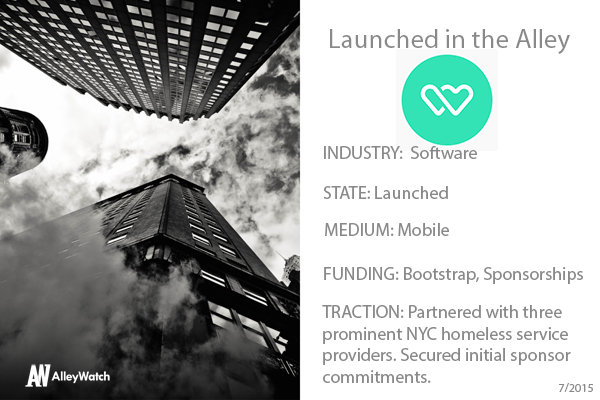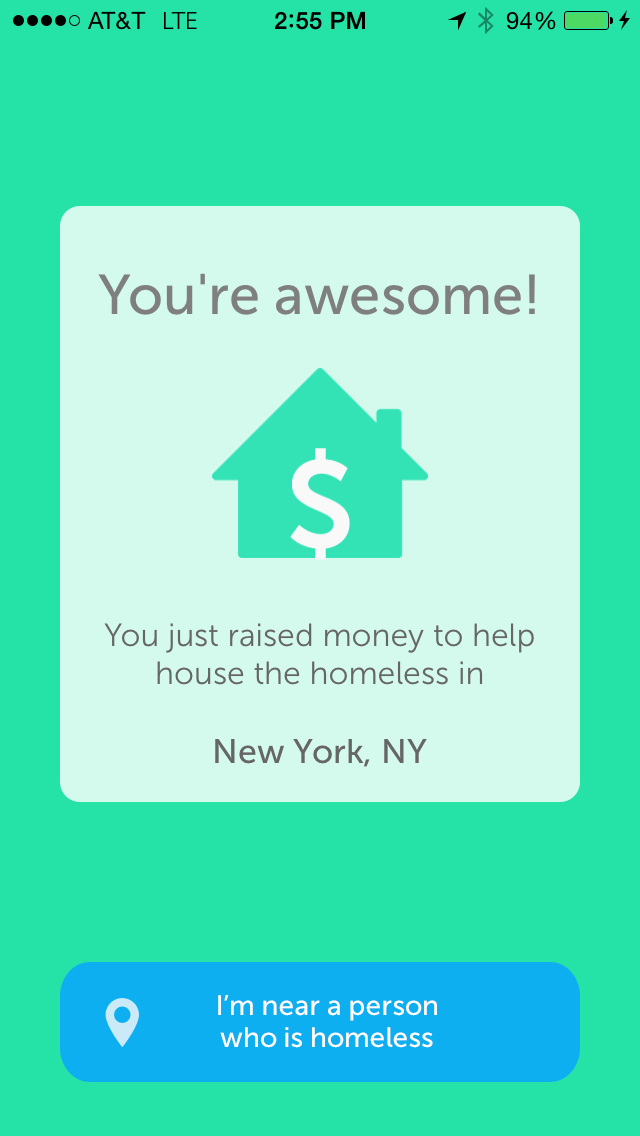
While the homeless population has been expanding, people have been wondering the best way to help these starving individuals. You might think that sparing a dollar or a granola bar will help, but ultimately it is not enough to solve such a large issue. WeShelter now gives you a way to help, even if you don’t how or always have the means. With WeShelter you just tap the big green button on your smartphone and unlock donations from various sponsorships. WeShelter understands that you are compassionate and now provides you a way to show you care.
Today we sit down with Ilya Lyashevsky, cofounder to discuss the app, sponsorships, and alleviating homelessness through technology.
Tell us about the product or service.
WeShelter gives people a way to act on their natural impulse to help when they see someone who may be homeless, in the moment, at no cost to themselves, and in less time than it takes to send a text. One button tap accomplishes two things: raises money for housing by unlocking sponsorship funds, and helps get direct assistance to the homeless by providing real-time mapping data to homeless outreach teams. The user sees the branding of the sponsor at each tap. The app also makes it easier to get in touch with an outreach operator, and provides users with salient facts about homelessness in their city.
How is it different?
To the best of our knowledge, WeShelter is the only app of its kind. There are other great apps out there that support charitable causes, but none provide a viable solution to the problem WeShelter is tackling: what to do when you see someone who may be homeless. Other apps in the space either don’t focus specifically on homelessness, or ask users to donate their own money, or don’t provide for a way to act in the moment, in response to seeing someone in need.
What market are you attacking and how big is it?
We’re a nonprofit, so we’re focusing on a social issue rather than a market segment. Tens of millions are spent annually to help end homelessness, but fundraising is only a part of what WeShelter is about. Our primary goal is to increase awareness and engagement with the issue among ordinary people, while simultaneously collecting data and raising funds to help the organizations providing direct services to the homeless. There are millions of people in cities around the US and beyond who are potential WeShelter users. By the same token, we anticipate that a variety of corporations and foundations may be interested in acting as sponsors.
What is the business model?
WeShelter works by acquiring support from sponsors such as companies or foundations (we are also considering allowing individuals to act as sponsors). Users see a sponsor’s branding in the app each time they unlock a donation. As a not-for-profit, WeShelter strives to pass 90% of the sponsorship funds to its homeless services partners while retaining 10% for operational costs.
What inspired the business?
The inspiration was sadly the number of homeless people we were seeing on the streets of New York City. We were all struggling with finding the best way to respond to the situation where you saw someone in need, and none of the available options seemed ideal. Since we were all working in mobile development in various capacities, we decided to try to apply our skills to the problem. Our initial approach focused on personal micro-donations, but that proved problematic in our beta trials, and we adopted the sponsored donation model instead.
What are the milestones that you plan to achieve within six months?

– Bring additional sponsors on board
– Grow our NYC user base to several thousand
– Roll out the real-time mapping functionality with the outreach teams run by our partner organizations
– Begin expanding into other urban centers
What is the one piece of startup advice that you never got?
We are a non-profit, and a piece of useful advice I wish we had got in relation to that is about obtaining 501c3 status: it turns out that if you are a young, lean organization like ours, the process is a lot easier than it is often made to sound, and it’s good to get it out of the way quickly, so you can benefit from all the advantages that come with IRS recognition.
If you could be put in touch with anyone in the New York community who would it be and why?
We’d love to talk to the folks heading up the New York offices of companies like AirBnB, Trulia, Lyft, and similar young, tech-based and location specific services, because we think they represent a great opportunity for collaboration.
Why did you launch in New York?
New York is where the homelessness problem is most acute, and living and working here is what pushed us to start the project in the first place. So that made the location a natural choice. And if we can make WeShelter work here, it will serve as a great and model for rolling the service out elsewhere.
Where is your favorite outdoor bar in the city for a drink when it is actually warm out?
We’re based in Brooklyn, and we’ve had some good times at Hotbird on Atlantic Ave. Also at 61 Local on Smith St., though technically it doesn’t have outdoor seating.




